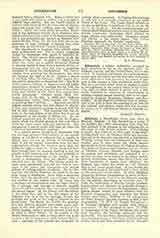

Affirmation, a solemn declaration accepted in legal procedure in lieu of the requisite oath. In England, Canada, and the United States, this is universal. In England and Canada the statutory enactments upon the matter provide that false statements under affirmation shall constitute the crime of perjury in like manner as false statements under oath. The same provision either direct or implied is found in the legislation of the various States of the Union. This right to affirm instead of giving oath is generally conferred in deference to conscientious or religious scruples against swearing, such as are entertained by Quakers, Moravians, Dunkers, and Mennonites. In the court of conscience such an affirmation is not held to have the standing of an oath for the cardinal and obvious reason that the intention to swear, i.e. to call God to witness, is formally excluded.
JOSEPH F. DELANY

